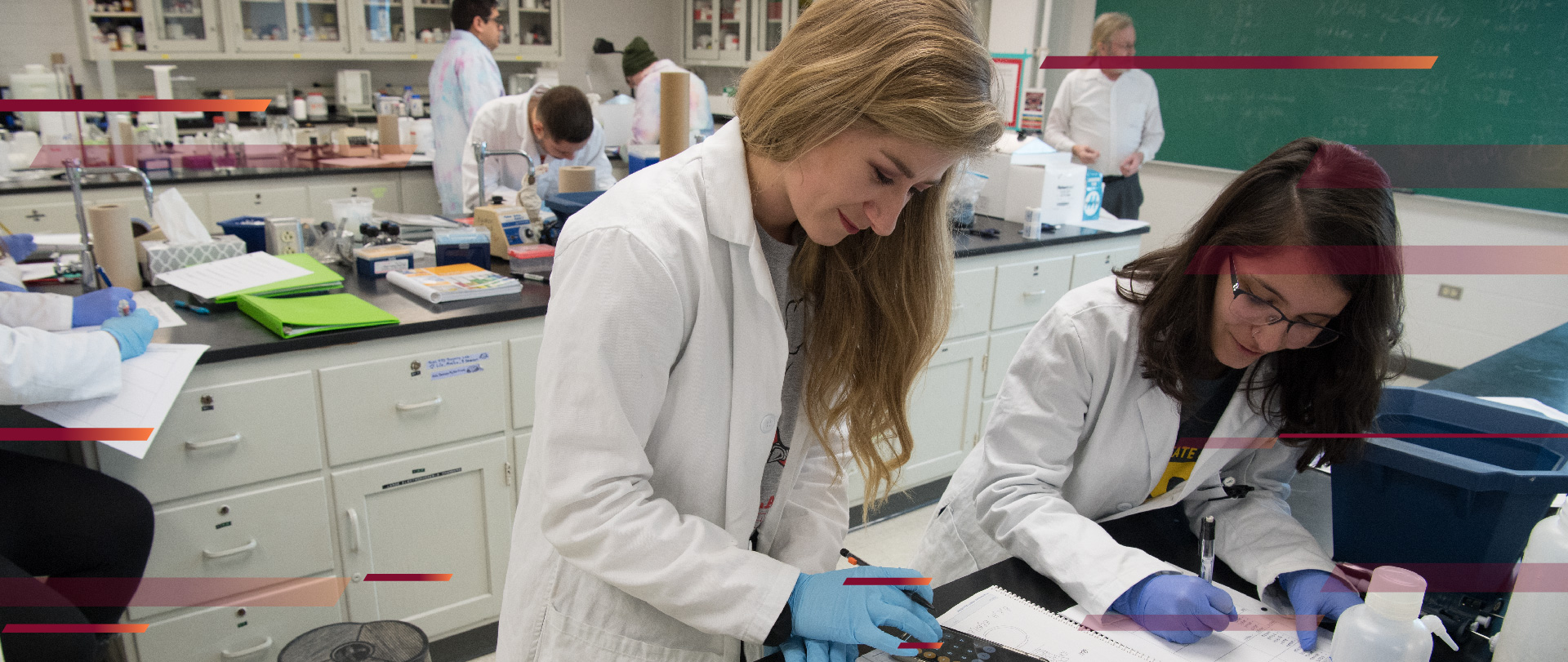Department of Biological Sciences
820 Campus Drive
ASC 2004
Big Rapids, MI 49307
(231) 591-2550

Options: Bachelor's
Locations: Main Campus
The Bachelor of Science in Biology/Forensic Biology Concentration is designed to prepare students for entry into the work force or admission into graduate programs in forensic biology. The requirements of the Forensic Biology program are based on the general requirements of the Bachelor of Science in Biology, with specific modifications and additions for forensic biology students. Specific courses such as Forensic Biology, Human Anatomy and Physiology, Microbiology, Genetics, Forensic DNA Analysis, Statistics, Calculus, Inorganic Chemistry, Organic Chemistry, Forensic Chemistry, Biochemistry, Physics and Criminal Justice are prescribed to fulfill the requirements of the degree and to best prepare students for future work in the field.
Forensic biologists provide valuable evidence for criminal and civil courts and other agencies by applying cutting-edge techniques in areas such as DNA analysis, forensic anthropology and pathology, forensic entomology, and biological chemistry. The Forensic Biology degree is designed for undergraduate students who are interested in analyzing biological evidence as it relates to legal and other investigations, collecting and processing evidence at a crime scene or in a laboratory, and working in a team environment with other scientists.
Students in the Forensic Biology program receive extensive training in the collection and analysis of biological evidence, in both laboratory and field settings. They learn how to isolate, purify, and amplify DNA to determine relevance to the investigation. Students learn how to evaluate mock crime scenes that include the decomposition of animal remains in the field. They also learn how to document, collect and analyze the insects, plants, and other biological evidence associated with an investigation to determine the time of death and to be able to answer other forensic questions. In addition, students learn to identify skeletal remains and evaluate trauma.
Graduates with this degree may be eligible for entry-level positions in forensic laboratories, medical examination offices, and law enforcement agencies. It should be stressed, however, that further graduate-level education is often required for students to become employable.
Lead Advisor: Dr. Roger Mitchell
Phone: (231) 591-5879
Email: [email protected]
Professional Advisor: Jenice Winowiecki
Phone: (231)591-2555
Email: [email protected]